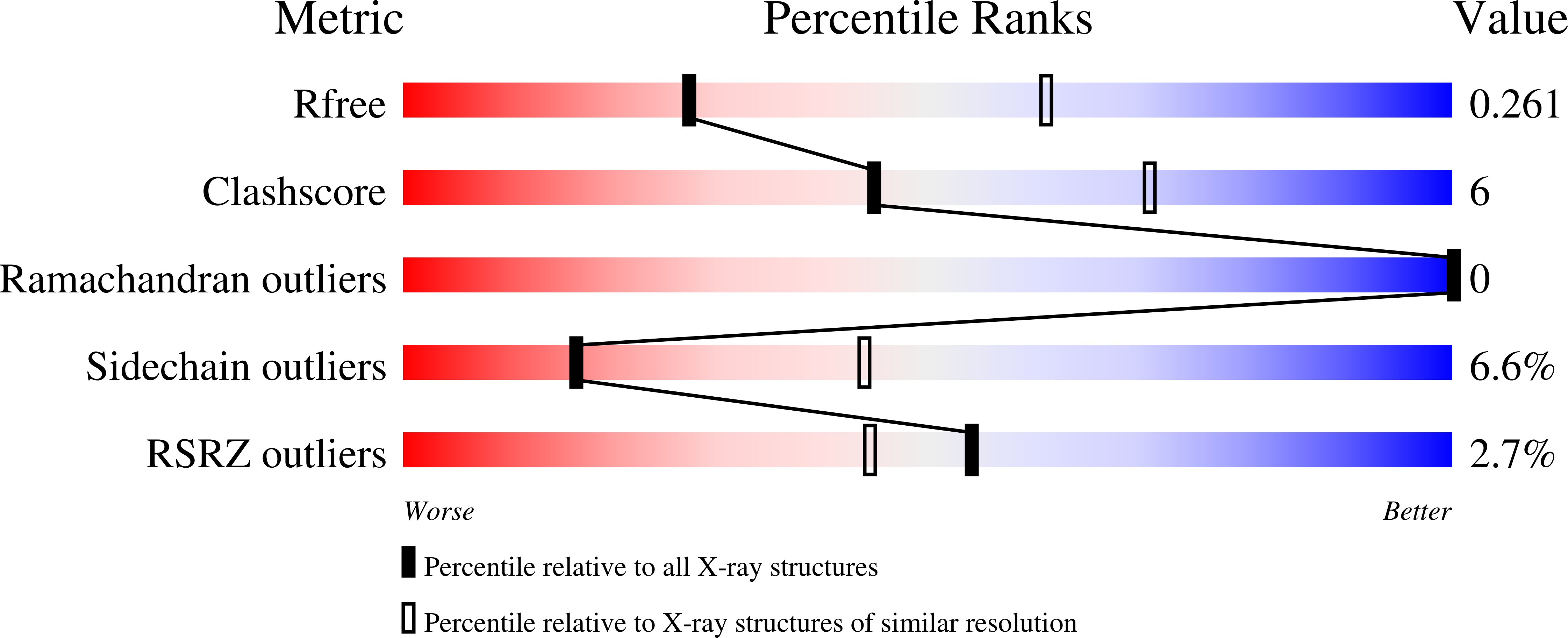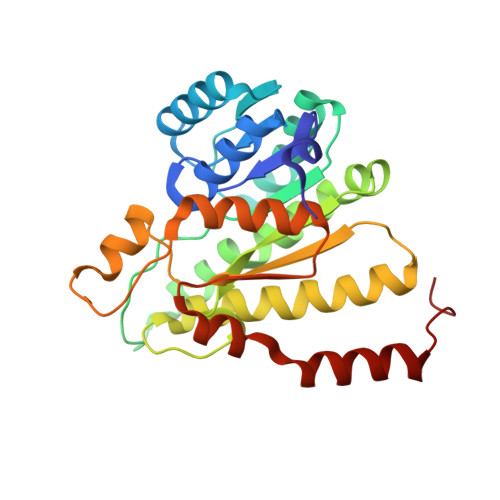Novel acidic 11 beta-hydroxysteroid dehydrogenase type 1 (11 beta-HSD1) inhibitor with reduced acyl glucuronide liability: the discovery of 4-[4-(2-adamantylcarbamoyl)-5-tert-butyl-pyrazol-1-yl]benzoic acid (AZD8329).
Scott, J.S., deSchoolmeester, J., Kilgour, E., Mayers, R.M., Packer, M.J., Hargreaves, D., Gerhardt, S., Ogg, D.J., Rees, A., Selmi, N., Stocker, A., Swales, J.G., Whittamore, P.R.(2012) J Med Chem 55: 10136-10147
- PubMed: 23088558
- DOI: https://doi.org/10.1021/jm301252n
- Primary Citation of Related Structures:
4P38 - PubMed Abstract:
Inhibition of 11β-HSD1 is viewed as a potential target for the treatment of obesity and other elements of the metabolic syndrome. We report here the optimization of a carboxylic acid class of inhibitors from AZD4017 (1) to the development candidate AZD8329 (27). A structural change from pyridine to pyrazole together with structural optimization led to an improved technical profile in terms of both solubility and pharmacokinetics. The extent of acyl glucuronidation was reduced through structural optimization of both the carboxylic acid and amide substituents, coupled with a reduction in lipophilicity leading to an overall increase in metabolic stability.
Organizational Affiliation:
Cardiovascular & Gastrointestinal Innovative Medicines Unit, AstraZeneca Mereside , Alderley Park, Macclesfield, Cheshire, SK10 4TG, United Kingdom. [email protected]

















